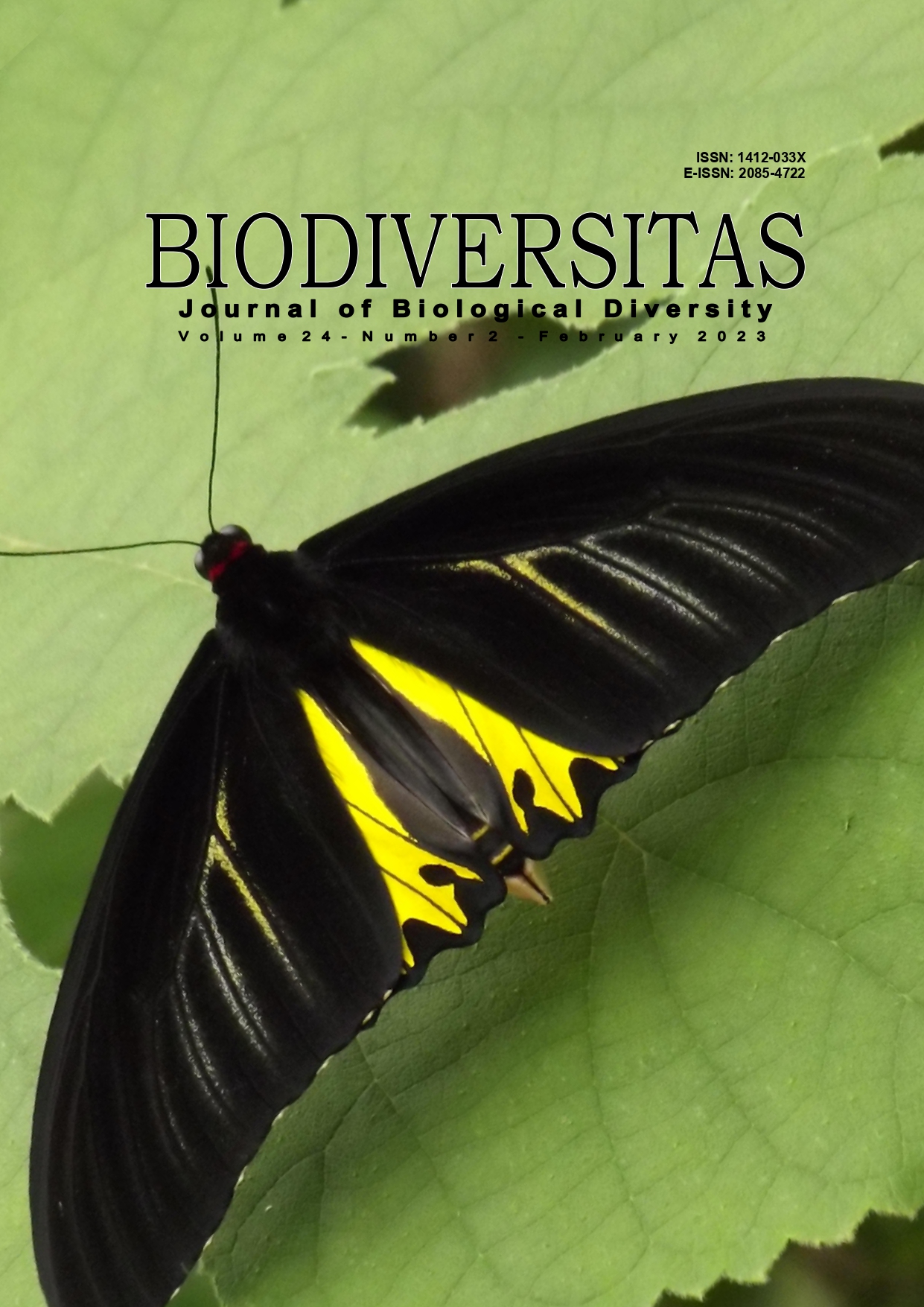Low-density polyethylene sheet biodegradation by Tenebrio molitor and Zophobas morio larvae and metagenome studies on their gut bacteria
##plugins.themes.bootstrap3.article.main##
Abstract
Abstract. Octavia B, Rakhmawati A, Suhartini, Rachmani LD, Putra TD. 2023. Low-density polyethylene sheet biodegradation by Tenebrio molitor and Zophobas morio larvae and metagenome studies on their gut bacteria. Biodiversitas 24: 878-886. Low-density polyethylene (LDPE) is one of the types of plastics that are massively produced and used today. Strong and very stable are the characteristics of this type of plastic. However, its chemical and physical qualities such as hydrophobicity and high molecular weight are believed to make LDPE plastic resistant to degradation. Some microorganisms such as bacteria, fungi, and algae are known to be feasible to be used as plastic biodegradation agents although some of them still show low biodegradation ability. Recently, it was reported that Tenebrio molitor and Zophobas morio could degrade plastic. These larvae can eat several types of plastic, and one of them is LDPE. The ability to degrade LDPE plastics with their gut bacteria contributes synergistically to solving problems related to plastic waste in the future. Therefore, the diversity of the larvae gut bacteria needs to be explored more to find out the bacteria that may be involved in the biodegradation of LDPE plastic sheets. In this study, T. molitor and Z. morio were treated with LDPE sheet diet for 30 days. By the end of the treatment, the sheets were analyzed to see the waste reduction index and the surface using SEM-EDX. Then, the gut bacteria were extracted and analyzed through metagenome analysis. This study found that T. molitor and Z. morio could degrade LDPE sheet with weight reduction indexes of 44.6% and 16.76% respectively. Metagenomic analysis found that T. molitor has 441 OTUs with Corynebacteria as the dominating genus. Meanwhile, Z. morio has 511 OTUs with Citrobacter as the dominating genus. Both larvae also have genera that known to have the ability to degrade LDPE sheets.

